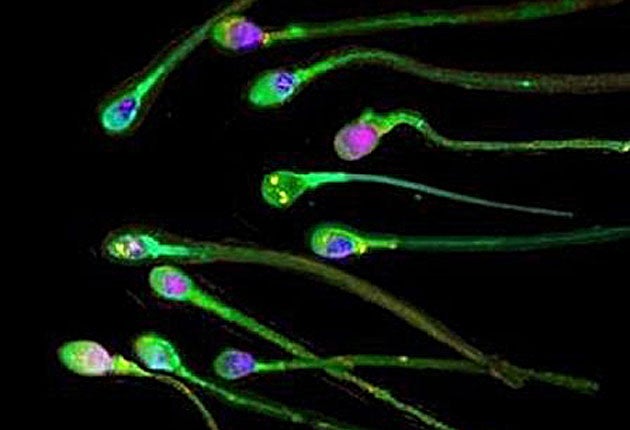What's the difference between sperm samples and discarded toenails?
Former is still a man's property, judge rules in landmark case

Six cancer patients whose sperm samples were lost by the NHS have won their claim for damages in a landmark judgement which establishes the legal principle that a man's semen is his own property.
The case, which could cost the NHS hundreds of thousands of pounds in compensation, is expected to lead to a review of the law relating to ownership of human body parts.
In yesterday's judgment the Lord Chief Justice, Lord Judge, the most senior judge in England and Wales, rejected the notion that sperm held by North Bristol NHS Trust had the same legal status as a discarded toenail or hair cut at a barber's shop.
Lord Judge, Master of the Rolls Sir Anthony Clarke, and Lord Justice Wilson, ruled that the sperm samples – given by the men after they were warned by doctors that chemotherapy might damage their fertility – were the property of the six who could claim damages for the loss. "Unlike products of the body which are removed from it with a view to their being abandoned – such as cut hair, clipped nails, excised tissue and amputated limbs – the sperm was ejaculated with a view to its being kept," said the judges.
Their ruling, overturning the county court judgment in favour of the NHS trust, opens the door for the men to claim for psychiatric injury or mental distress at a later date at Exeter County Court.
Lord Judge said: "The appeals raise interesting questions about the application of common law principles to the ever-expanding frontiers of medical science." He said the "novel question" was whether the men could sue over the loss of semen produced for possible later use.
The men were diagnosed with cancer and received treatment at Southmead Hospital, Bristol. They were told chemotherapy treatment might damage their fertility. They also agreed to save semen samples for possible later use, but in 2003 liquid nitrogen in storage tanks fell below the required level, the semen thawed and was lost. The men, none of whom wants to be named, believed their hopes of fathering children were dashed. Some have regained their fertility and one has died.
Lord Justice Wilson said: "Their reaction to news of the loss lies at the heart of their claims. They each argue that in any event it is patently foreseeable that, already in a vulnerable condition, each would be likely to suffer – to put it at its lowest – a severe adverse reaction to the news that, unless he was to recover his natural fertility, his chance of becoming a father, represented by the storage of his sperm, had been lost."
The hospital trust denied liability, saying the samples were not property in the legal sense.
But the Court of Appeal judges ruled: "The sperm retained a significant property, namely that, although... suspended by having been frozen, it remained in essence biologically active... a living nexus with the men whose bodies had generated it."
Join our commenting forum
Join thought-provoking conversations, follow other Independent readers and see their replies
Comments
Bookmark popover
Removed from bookmarks